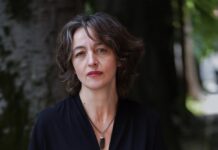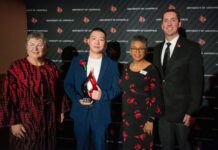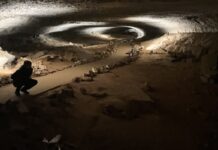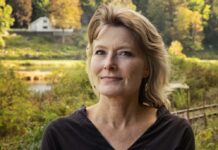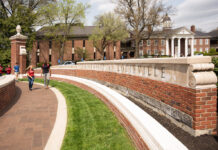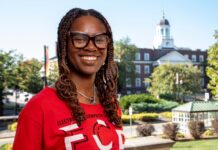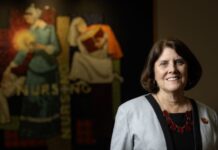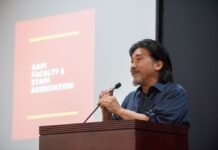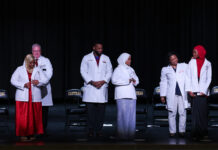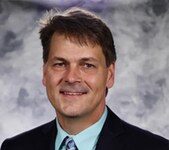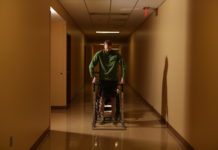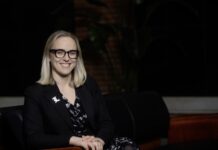The faculty-student team includes UofL, University of Kentucky and Ball State University in Muncie, Ind., and is among 20 chosen internationally to showcase solar-powered houses at the Orange County Great Park in Irvine, Calif., next fall. The houses are to highlight renewable energy systems and energy-efficient technologies, products and appliances already available to homeowners.
“This is an awesome opportunity to apply everything we’ve learned in the classroom toward a project that reaches into the real world,” said UofL senior Kelsey King, a mechanical engineering major from Louisville who is the project’s student leader.
King said the team currently has 20 students, but with this announcement, she expects the group to grow. Besides engineering, the team includes students from business, communication and fine arts as well as architecture students from Ball State, she said. All three schools have faculty advisers to the team.
“We’re really excited about the opportunity. Our multidisciplinary team is building the skills to solve the challenges our country faces in the future,” said project faculty leader Mark McGinley, endowed chair for infrastructure research in UofL’s civil and environmental engineering department. “We are grateful for the support of the DOE, UofL Speed School of Engineering, and Conn Center for Renewable Energy Research, Ball State, UK and GE. This is a real team effort across multiple programs, institutions and states.”
King worked at the Conn Center on her preliminary research and development that ultimately led to the successful proposal, and the center will continue its involvement with the team as it prepares to compete on the national stage.
“Through the 2013 Solar Decathlon Competition, the Conn Center hopes to develop and introduce low-cost housing solutions with very low energy bills for low-income and rural living within the state of Kentucky,” said Mahendra Sunkara, Conn Center interim director.
Last year several UofL team members attended the decathlon at the National Mall to check out the worldwide competition in which teams that have designed, built and tested their homes reassemble them in the large venue. Teams compete in 10 categories ranging from best architecture and engineering to energy production for heating and cooling as they build solar-powered structures that combine affordability, consumer appeal and design excellence.
The exposure last year wasn’t the first solar decathlon for King. “I went to the 2009 competition accidentally,” she said, encountering it during a Washington, D.C., vacation. “I said, ‘This is the coolest thing ever – we need to do this’,” she recalled. “And now we’re going.”
Next year’s will be the first solar decathlon outside Washington, D.C., since the contests began in 2002.
“As President Obama made clear in the State of the Union address this week, we need to ensure that the next generation of America’s architects, engineers and entrepreneurs have the hands-on experience and training they need to lead our nation’s clean energy future,” U.S. Department of Energy Secretary Steven Chu said in announcing selection of the 20 teams. “The Solar Decathlon will unleash the ingenuity, creativity and drive from these talented students to demonstrate new ideas for how families and businesses can reduce energy use and save money with clean energy products and efficient building design.”


